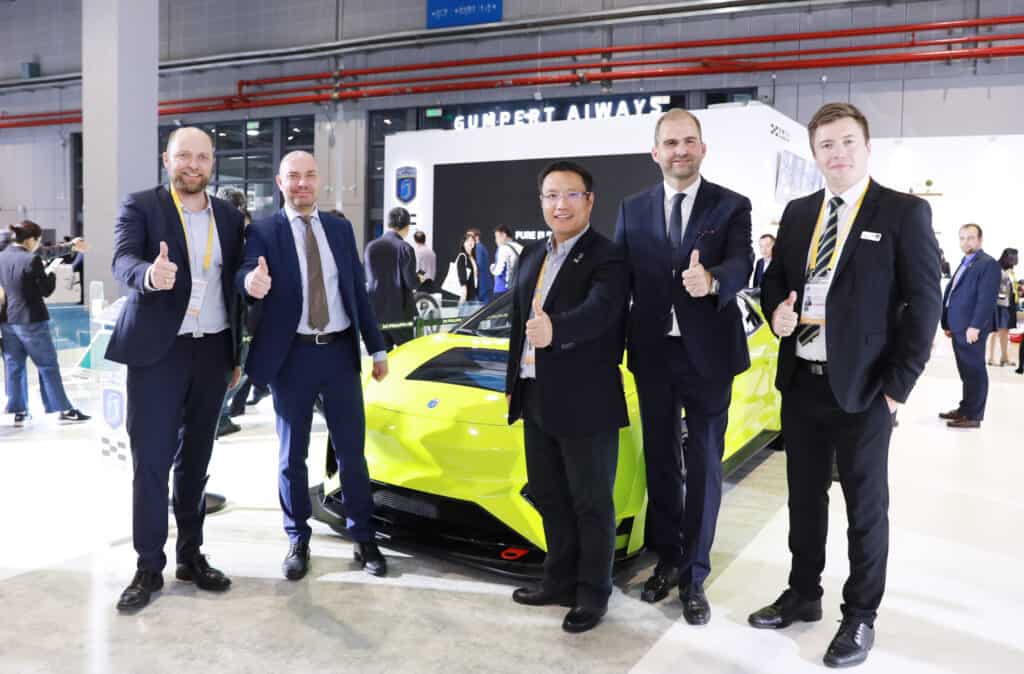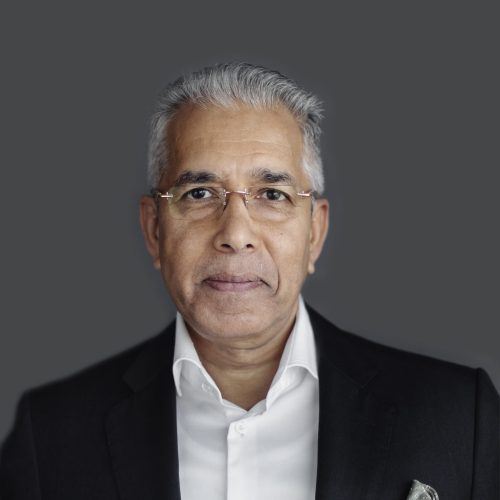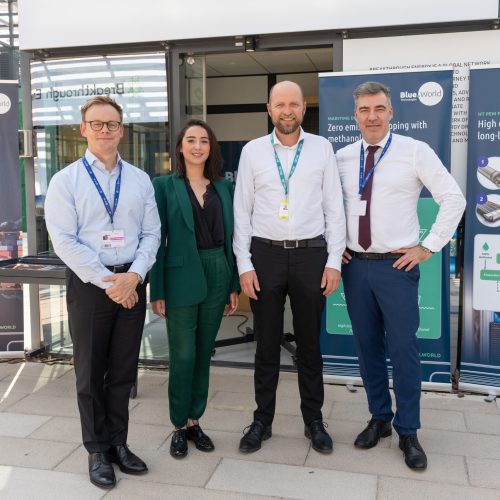
In 2015 China released their 10-year plan “Made in China 2025”, presenting 10 strategic areas within which they aim to become world leaders. In the following years, Chinese companies, both privately and state-owned, have invested heavily in Western companies which have resulted in the Executive Vice-President of the European Commission, Margrethe Vestager, encouraging that member countries should buy stakes in companies to counter the threat of Chinese takeovers.
Within the past couple of weeks, this debate has increased, and as CEO and Co-founders of a company that was kick-started by the means of Chinese companies, I entered the debate with inputs to an article series in the Danish business media FINANS.dk explaining how we as a technology start-up managed to close a seed round investments only three months after the company was founded of more than 6 MEUR supported by risk-taking, ambitious, and determined Chinese partners. Realising this investment in Europe would have been very difficult.
When we founded Blue World Technologies, it was with a vision to contribute solving the emerging climate challenges and massive air pollution problems around the globe. As a company that was founded to make a difference, we have an obligation to maintain a global perspective on the risks and opportunities in the world, and therefore, it has been a natural path for us from the very beginning to get shareholders and partners from all over the world to join the vision – as we see it: fighting global warming and local emissions is not a task to be undertaken with a nationalistic approach. It is a global mission and without partners throughout the world, and in particular in Asia including China and India, we would be doomed to fail.
With a very clear plan for the company, our approach to raising capital has also had the objective of ensuring that the interest of the company always comes first, and the company would not be dominated by a single shareholder driven by market, financial, political, or other motives. That politics should not interfere with business is something Lone Fønss Schrøder, board member at Volvo Cars – owned by Chinese company Geely – agree with. In the same article series in FINANS as I was involved in, she states: “We must do what is best for the business and shareholders. And then we should contribute setting healthy footprints around the world”.
The first green steps
In Denmark we led the development of the wind turbine business back in the ‘70s and ‘80s and are still hosting some of the pioneers within the industry, e.g. Vestas, the world’s largest wind-turbine manufacturer. When the wind turbine industry began to bloom in Denmark, it was at a time where most other nations were hesitant to take the first bold steps towards a greener future. Through subsidies, Denmark hosted an industry that would take 20 to 30 years to be able to compete head-to-head with traditional fossil-based energy production. The situation is luckily not the same today, as we are seeing a green global race towards renewable energy. For the past decade battery and solar technology have undertaken an extremely rapid revolution and is quickly eating its way into and transforming the energy industry. Much faster than most predicted. The winners of this transition can to a large extent be found amongst Asian and US companies but less by European. Why is that?
Access to bold investments from the Chinese government and industries and US private capital markets is the key driver for this. When specifically looking at China, they have not only fuelled the private companies by state-owned company investment and lending programs, but they have also been rolling out massive amounts of EV’s and so on to support the industries. They know and acknowledge – as do tech start-ups – that an integral part of any innovative company is failure. The ability to take calculated risks and accept a certain extent of failure is the way to quickly learn and adapt. That risk willingness is something we in Europe must learn to be able to compete in the green race of the 21st century.
In Europe, we have taken a conservative research-based approach, both on a national and on a European level. There is a tendency that until something is tested to the extent where commercial success can be solidly proven it is just kept in the laboratories. That is not the way to accelerate the green transition and creating the global winners of tomorrow.
The 2020s will be the age of Power to X – the final piece of the puzzle to enable a 360-degree transitioning and sector coupling of the energy and transportation industries. So how can Europe foster some of these winners?
Risk willing capital
Alongside the development of the wind turbine industry world-leading research and development within the Power to X industry have taken place throughout Europe, and we have the knowledge and competences to commercialise the technologies. To do so we have to outcompete technologies that we have been relying on for the past century. This requires a large amount of risk willing capital flowing into the companies accompanied by structural changes in taxes and/or subsidies to enable the companies to outlive their potential. With that said, the EU is moving in that direction with the activities under the umbrella of the European Investment Bank, but an investment gap is still present within equity funding of green-tech pre-IPO companies which are much more capital intensive early in the lifecycle when it comes to setting up factories, inventories, laboratories and the like, compared to software companies. So, we urge small to large financial investors, corporate to government to take part in the booming European Power to X industry as it is key in the reduction of fossil fuels around the globe. At the same time, we need to remember and accept that this, fortunately, is a GLOBAL race towards a greener world. It means that the companies we do foster here in Europe will be acting on a global scene and should grab the opportunities of the global market, whether its establishing leveraging market opportunities in the US, creating partnerships in India, or raising capital in China. But if we do this right, the potential is there, and Europe can once again take the lead in the green race.
With Blue World Technologies’ and the world’s interest in mind – and with the support of a global network of courageous partners – we are signing into the race determined to win.
Anders Korsgaard co-founded Blue World Technologies together with Mads Bang and Mads Friis Jensen in 2018 with an ambitious plan to commercialise the methanol fuel cell technology through economies of scale.
The methanol fuel cells act as a green alternative to combustion engines and diesel generators for a wide variety of applications.
As a part of the Power to X eco-system the methanol fuel cell technology contributes to solving parts of the green transition which cannot be solved by direct electrification and battery technology alone.
The original blog was posted on Anders Korsgaard’s LinkedIn profile.


